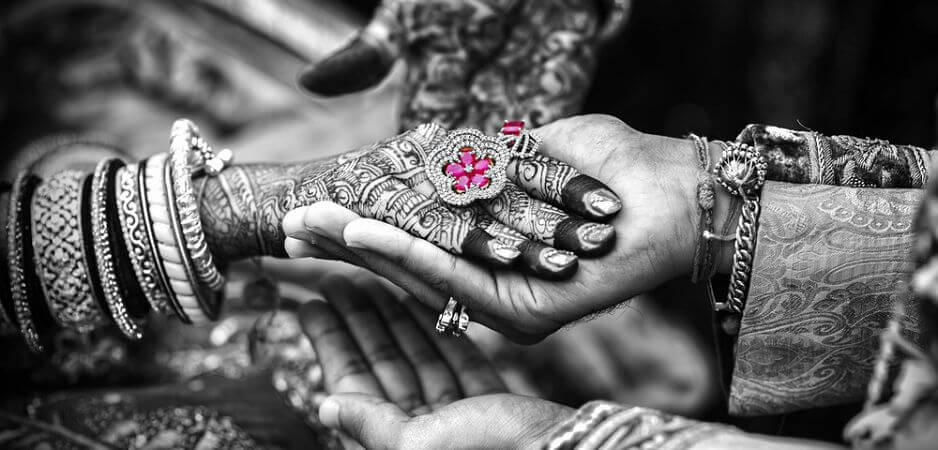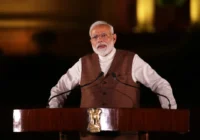The ruling against instant divorce is a victory for Indian Muslim women, but there is a long way to go before real change occurs.
On August 22, the Supreme Court of India declared the practice of instant divorce in Islam, known as triple talaq, to be unconstitutional and un-Islamic. The judgment was widely applauded in many sectors of society, especially among Indian Muslim women.
As per the BBC, there have cases of Muslim men in India who have “divorced their wives by issuing the so-called triple talaq by letter, telephone and, increasingly, by text message, WhatsApp and Skype.” However, while Islam allows for married couples to separate, divorce itself is disliked and the process is far more complicated than simply uttering talaq (divorce) three times.
There are two types of divorces practiced today: talaq al-sunnah and talaq al-bidah. In the former, the word sunnah refers to the traditions of the Prophet Muhammad. In the latter, bidah means innovation, and this form of divorce dates back from the eight century under the Umayyad Empire — it’s also not mentioned in the Quran or part of sharia law.
Talaq al-sunna is the most common and ideal form of divorce in Islam, and it involves two sub-types: talaq ahsan and talaq hasan. In talaq ahsan, the husband utters the word talaq once and then waits for a few months, while in talaq hasan he says it three times over three menstruation cycles of the wife. In both cases, there is a period of three months in which the couple must abstain from sex before the divorce becomes final; if they are intimate, the divorce is revoked. The aim here is to give the couple a waiting period wherein there is ample opportunity for the husband and wife to reconcile.
Talaq al-bidah is the process of instant divorce, or triple talaq, consisting of three simple pronouncements whereby the husband says he wishes to divorce his wife. This form of divorce is not recognized by most schools of jurisprudence in both Sunni and Shia Islam, and it is banned in 23 countries, including India, Pakistan, Egypt, the United Arab Emirates and Malaysia.
So, how did the practice of triple talaq work in a country like India?
THE INDIAN CONSTITUTION
Part III of the Indian Constitution is the most important section as it guarantees certain rights and freedoms to citizens. Any law made by the state that clashes with part III can be challenged in the Supreme Court, which then weighs it against the provisions of the constitution and can strike it down if it violates any fundamental rights provided to citizens.
Article 25 of the constitution guarantees freedom of conscience and the right to freely practice and propagate religion. The Indian legal system also allows citizens to practice their personal laws in some areas. In personal matters such as marriage and divorce, people are free to follow their own laws. Parliament can legislate in order to codify the personal laws of various religious groups in India. Part III of the constitution, however, is not applicable to personal laws practiced by different religious communities in India (such as Krishna Singh v. Mathura Athir).
While the Supreme Court has ruled that the triple talaq is unconstitutional, talaq al-sunna can still be practiced by Muslims in the form of their personal laws. The latest judgment, however, is not the first of its kind. In the case of Shamim Ara v. State of UP, the court declared instant divorce to be illegal as there is no scope of reconciliation between the parties once talaq is uttered.
There were two main arguments raised before the Supreme Court. First, Muslims have the freedom to practice religion under article 25 of the constitution. Second, personal laws cannot infringe upon fundamental rights (part III of the constitution). With regard to the first argument, the court found that the practice of triple talaq is not an integral part of Islam. With regard to the second argument, the court held that Islamic divorce has already been codified under the Muslim Women (Protection of Rights on Divorce) Act 1986 and, therefore, can be scrutinized in light of fundamental rights guaranteed under the constitution.
But how will the court ruling be put into practice?
BRINGING REAL CHANGE
As soon as the Supreme Court delivered the historic judgment, members of the ruling Bharatiya Janata Party were quick to credit Prime Minister Narendra Modi for his efforts in bringing equality to Indian Muslim women. Modi himself did not lose any time in hailing the ruling and tweeted: “Judgment of the Hon’ble SC on Triple Talaq is historic. It grants equality to Muslim women and is a powerful measure for women empowerment.” Party chief Amit Shah also lauded the judgment and instantly praised the efforts of the prime minister for effectively presenting the case of Muslim women in the Supreme Court.
However, the government must realize that the judgment is not the end but the beginning, since the Supreme Court has passed the baton over parliament to legislate upon the matter. There is also the issue of ensuring that the ban on triple talaq is actually enforced in a country the size of India. In reality, Muslim couples could still practice instant divorce as part of Islamic law since only the enforceability of triple talaq is suspended through the ruling. A married couple divorced through triple talaq may prefer to follow it as a religious duty since fornication is prohibited in Islam. As Faizan Mustafa, a legal expert, told Al Jazeera, “Court judgments do not bring about social reforms.”
Moreover, triple talaq is directly connected with other issues that Muslim women face such as inheritance and the legitimacy of children. For example, since triple talaq is no longer enforceable, a question may arise as to whether a child born to a woman after she has been through an instant divorce is legitimate or illegitimate. According to Islamic law, such children would be illegitimate, but as per Indian law they would be considered legitimate as instant divorce is now illegal.
 The legislation drafted on triple talaq must take into account related issues as well. The task is not easy because it involves reconciling personal laws with fundamental rights. Since the Supreme Court has decided that personal laws cannot infringe upon fundamental rights, it will not be easy for the government to legislate on personal laws like that of inheritance and the legitimacy of children.
The legislation drafted on triple talaq must take into account related issues as well. The task is not easy because it involves reconciling personal laws with fundamental rights. Since the Supreme Court has decided that personal laws cannot infringe upon fundamental rights, it will not be easy for the government to legislate on personal laws like that of inheritance and the legitimacy of children.
Amid all the celebrations, it is unclear how the Modi government will deal with these issues in order to deliver on its promise of upholding the rights of Muslim women.
The views expressed in this article are the author’s own and do not necessarily reflect Fair Observer’s editorial policy.
Photo Credit: IllustrativeArt / Shutterstock.com
Support Fair Observer
We rely on your support for our independence, diversity and quality.
For more than 10 years, Fair Observer has been free, fair and independent. No billionaire owns us, no advertisers control us. We are a reader-supported nonprofit. Unlike many other publications, we keep our content free for readers regardless of where they live or whether they can afford to pay. We have no paywalls and no ads.
In the post-truth era of fake news, echo chambers and filter bubbles, we publish a plurality of perspectives from around the world. Anyone can publish with us, but everyone goes through a rigorous editorial process. So, you get fact-checked, well-reasoned content instead of noise.
We publish 2,500+ voices from 90+ countries. We also conduct education and training programs
on subjects ranging from digital media and journalism to writing and critical thinking. This
doesn’t come cheap. Servers, editors, trainers and web developers cost
money.
Please consider supporting us on a regular basis as a recurring donor or a
sustaining member.
Will you support FO’s journalism?
We rely on your support for our independence, diversity and quality.






